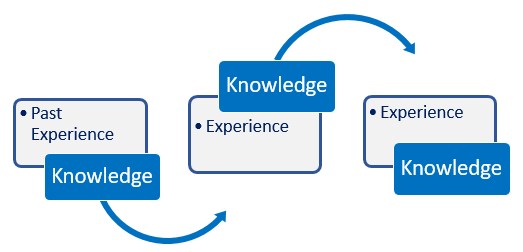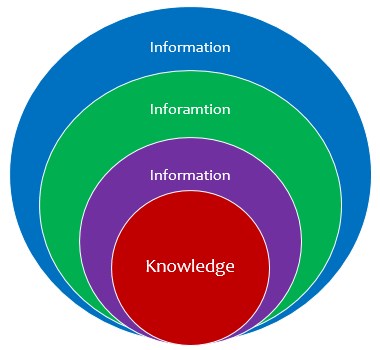Constructivism
Constructivism is a learning theory that explains how people acquire knowledge and learn. The theory asserts that learners actively construct new knowledge, meaning, and a perspective of the world based on individual experiences and internal knowledge. Since everyone has a different set of experiences and perceptions, learning is unique for each person.
About Constructivism
Constructivist theorists believe the learner is a constructor of his or her own knowledge. They believe individuals actively construct mental models based on prior knowledge and experience in order to understand the world around them.
Other learning theories such as behaviorism and cognitivism view knowledge as external to the learner and the learning process as the act of internalizing knowledge. Constructivism, however, assumes that learners are not empty vessels to be filled with knowledge, rather they are actively attempting to create knowledge and meaning.
PRINCIPLES OF CONSTRUCTIVISM
- Knowledge Is Constructed
- Learning is an Active Process
- New Learning is Influenced by Past Experiences
- Knowledge is Personal
- Knowledge is a Subjective Representations of Reality
- Learning should be Interactive
Knowledge Is Constructed
Constructivism is about learning being constructed, rather than simply being acquired. Learners build new knowledge upon the foundation of previous learning and by discovering connections between different ideas and areas of knowledge. As they perceive each new experience, new information is linked to prior knowledge. An individual’s understanding is constantly evolving, and one’s knowledge of a particular topic or concept takes on new meanings every time it is applied in a new situation or from a new perspective.

Learning is an Active Process
Learning is an active process, rather than a passive one. The passive approach views the learner as an empty vessel to be filled with knowledge, whereas constructivism believes that learners construct meaning through active engagement and interaction with the world around them.
Information can be passively received, but actual understanding comes from making meaningful connections between prior knowledge and new knowledge.
New Learning is Influenced by Past Experiences
The learner is not a blank slate, rather they bring past experiences and knowledge to a situation. New learning is shaped by those past experiences and mental models the learner formed from those experiences. This prior knowledge directly influences new knowledge, thus, learning is a process of continuously adjusting one’s mental models to accommodate new experiences.
The culture and environment in which individuals grow up will also influence how they think and what they think about.

Knowledge is Personal
Knowledge is constructed by the learner and since everyone has different experiences and perceptions, learning is unique for each person.
Individuals;
- experience life differently based on numerous physiological and emotional factors
- have a distinctive point of view, based on existing knowledge and experiences
- bring perspective and past experiences to a current situation
- have a different interpretation and construction of the knowledge process
Thus, the same information or situation experienced by different people may result in different learning for each individual, as their interpretations and prior experiences differ.
Knowledge is a Subjective Representations of Reality
Constructivists believe learners apply new knowledge to their own realities, therefore, they will construct their own meaning from the knowledge being acquired. In other words, learners develop their own individual mental model of the real world based on their perceptions of that world. Basically, they create their own subjective representations of reality – how they believe the world is. They continually update their own mental models to reflect the new information and construct their own interpretation of reality.
Learning should be Interactive
Learning should be interactive to promote a higher-level of understanding, and to help develop personal meaning. Interacting with other learners allows people share and challenge ideas. A collaborative learning approach encourages theories and ideas to be discussed with and built upon by fellow learners.
Links


